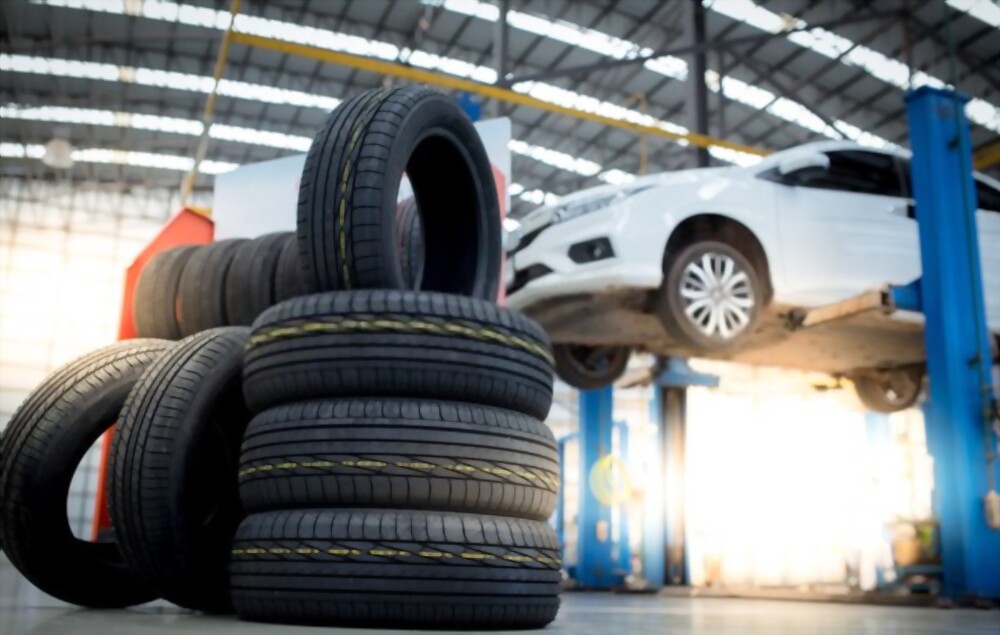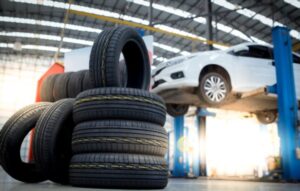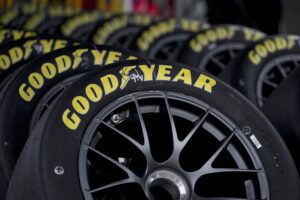Part 1: Understanding Tire Types and Sizes
When it comes to selecting the right tires for your SUV, there are several important factors in determining your vehicle’s performance, handling, and safety on the road. One of the first considerations is understanding tire types and sizes. Different SUV models require specific tire types, which can be categorized into all-season, summer, winter, or performance tires. All-season tires are the most common choice, offering a balance between handling, traction, and longevity. They are suitable for year-round driving conditions in regions with mild winters. On the other hand, summer tires provide superior performance in dry and wet conditions, ensuring excellent grip and cornering abilities. Drivers residing in areas with heavy snowfall should opt for winter tires, which offer improved traction on icy roads. Additionally, performance tires are designed for SUV owners looking for a sportier driving experience, delivering enhanced responsiveness and grip on the road.
When it comes to tire sizes, it is crucial to choose the correct measurements as specified by the SUV manufacturer. The size can be found on the tire sidewall or in the vehicle owner’s manual. It is essential to match the width, aspect ratio, diameter, and load index of the tire to your SUV’s requirements. Correctly sized tires contribute to improved handling, stability, and overall driving experience. Taking the time to understand tire types and sizes will undoubtedly help you make an informed decision and ensure your SUV’s optimal performance on the road.
Part 2: Considering Tread Patterns and Traction
Another crucial factor to consider when choosing tires for your SUV is the tread pattern and traction capabilities. Tread pattern refers to the design on the tire’s surface, designed to channel water, slush, and debris away to maintain optimal contact with the road. Different tread patterns are engineered to perform well in various driving conditions. For example, symmetrical tread patterns are excellent for handling and fuel efficiency, making them suitable for SUVs used predominantly on highways. Asymmetrical tread patterns, on the other hand, provide improved performance on wet surfaces and enhanced cornering capabilities. Siped tread patterns with small slits on the tire surface excel in snowy conditions by creating more biting edges for traction.
Traction is another vital aspect to consider when selecting tires for your SUV. The tire’s capability to grip the road in wet, snowy, or icy conditions directly affects your vehicle’s safety and control. Traction is usually indicated by the tire’s UTQG (Uniform Tire Quality Grading) rating, which measures factors such as treadwear, traction, and temperature resistance. Opting for tires with a higher UTQG rating ensures better performance in adverse conditions. Furthermore, checking for the M+S (Mud and Snow) symbol on the tire sidewall indicates that it meets the industry standards for winter use. By considering tread patterns and traction capabilities, you can choose the right tires that will enhance your SUV’s handling and provide peace of mind during various driving scenarios.
In conclusion, selecting the right tires for your SUV requires careful consideration of tire types and sizes, as well as tread patterns and traction capabilities. Keeping in mind your specific driving needs, local climate, and the intended use of your vehicle will guide you towards the most suitable tire choice. The investment in high-quality tires not only ensures your safety on the road but also contributes to better fuel efficiency, handling, and overall driving experience. So, whether you’re heading out for a road trip or tackling challenging terrain, taking the time to choose the right tires will undoubtedly make a significant difference in your SUV’s performance.





